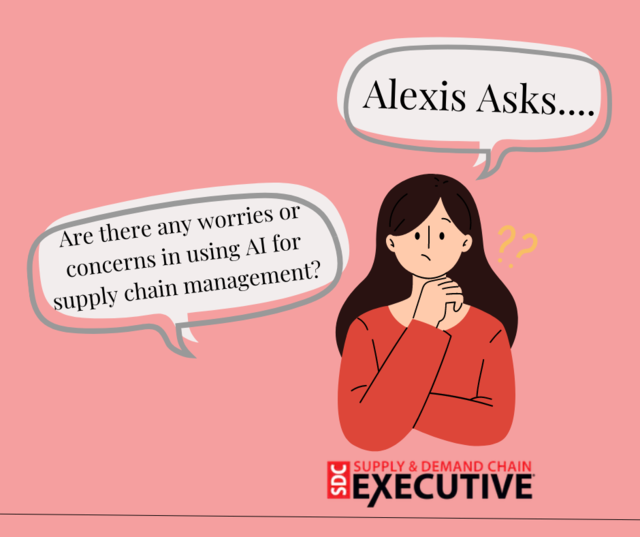
Supply chains are the backbone of successful business operations— at least in my opinion, but maybe I'm a little bias. The complex nature of supply chains comes with inherent challenges we all know and (not really) love. And then there's AI. AI technology is reshaping supply chain management and providing innovative solutions to mitigate risks, but emphasizing the importance of safety and security in its regulation is key to harnessing its power.
AI has emerged as a star player for supply chain management, offering predictive analytics, real-time data insights and automation capabilities that drive efficiency and resilience. Vijay Raman, vice president of products & technology at TIBCO, explains "AI is acting to mitigate risks for the supply chain is by forecasting potential issues, identifying existing threats and facilitating a decrease in response time when confronted with supply chain disruptions. When there is a significant delay in response to a disruption, such as in the case of extreme weather, security events or major accidents, the result can cascade throughout the entire supply chain. We saw this on multiple occasions in the last few years. Companies now realize that implementing AI throughout the supply chain helps them to more quickly enact immediate and proactive responses to disruptions."
We know there's even more benefits to AI. The booming tech is also making strides in streamlining business processes in supply chains to optimally allocate resources and improve effectiveness. Raman says that as businesses introduce AI to their data, AI technology will be able to analyze that data to understand business patterns and objectives. Using AI, IT and cybersecurity personnel can gain a deeper understanding of business operations, or, in this case, how operations at each step of the supply chain can directly affect the rest of the supply chain.

With so many people questioning the future of AI, and even fearful of its capabilities, I posed the question "Are there any worries or concerns in using AI in the supply chain?" The short answer: Yes and no. "At the moment, security is a concern with AI implementation, since AI can only work with access to relevant data. Within the context of the supply chain, this means sharing information with different teams, or even different businesses," says Raman. "With this in mind, enterprises should be careful to make sure that they are only sharing necessary data throughout the supply chain. This is why any implementation of AI must also come with the ability to both track and dictate how data travels, as well as to secure proprietary data within a supply chain." It's also important that governments start prioritizing the regulation of AI to help prevent security issues.
Advancements in AI will mean less human error, quicker production processes and faster responses to supply chain disruptions, that's clear. Leveraging AI's capabilities to predict disruptions, optimize logistics and improve decision-making allows businesses to adapt more effectively to ever-changing market dynamics. Raman describes that with the evolution of Generative AI, a new generation of applications and natural language interfaces will leverage this technology by delivering additional context to existing applications and allowing less technical personnel across the supply chain ask questions that will better inform decision makers. What's a little less clear is how AI will be regulated in the future, but with a solid foundation in understanding the importance of maintaining safety and security with the use of AI, the era of smart technology is just the start.




















